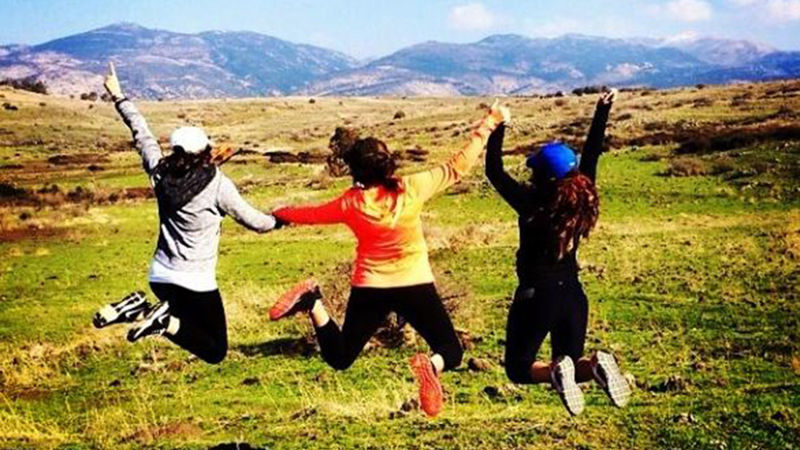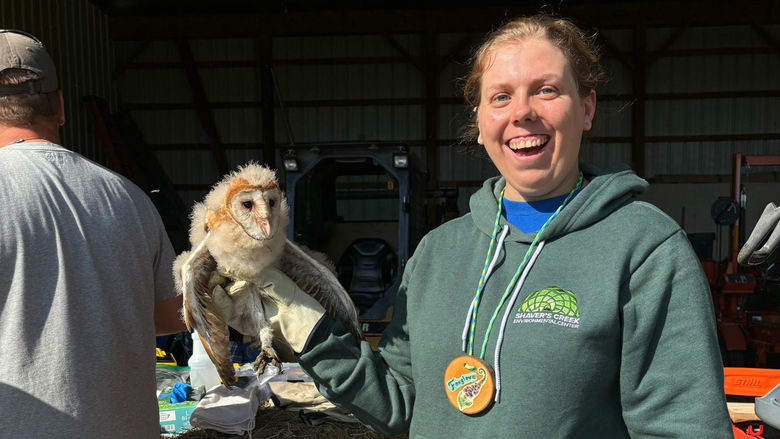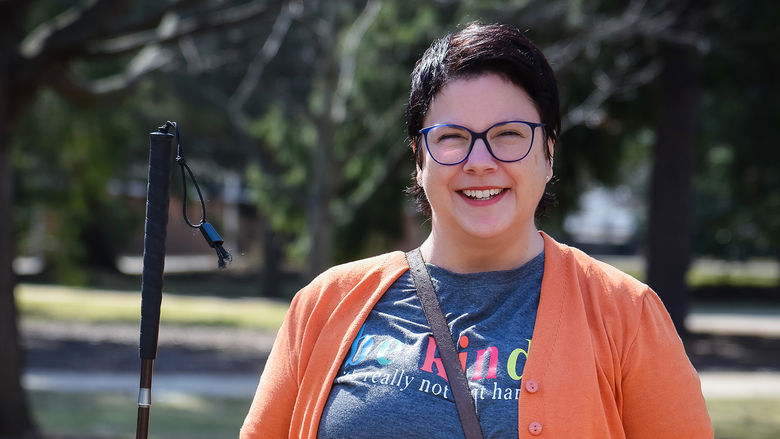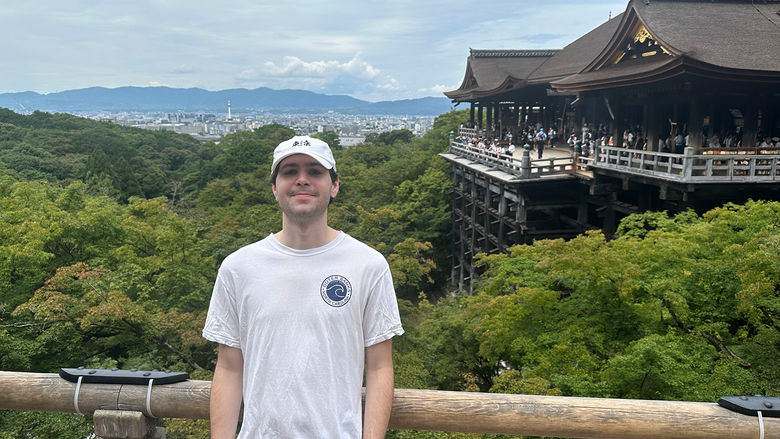

This dialog contains the full navigation menu for this site.

Each year, about 20,000 young Jewish men and women from all over the world make a pilgrimage of sorts to their ancestral homeland of Israel through a program called Taglit-Birthright Israel.
Amber Smith was lucky enough to take such a trip this past January. The junior from Northeast Philadelphia keeps busy on campus with a variety of activities and leadership roles. She has a full life with family and friends and school, yet some part of her was unfulfilled. “I’ve always been interested in Judaism. My parents aren’t very religious, my dad’s not even Jewish, but my cousin went on a trip and couldn’t stop talking about how amazing it was, so I researched it. I really wanted to learn more about where I came from and the history.”
Birthright’s mission is to foster and strengthen bonds between the land and people of Israel and create solidarity with Jewish communities worldwide. One big step in doing that is to bring young Jews into the country. Offered to anyone Jewish between 18 and 26, trips are funded through the Israeli government and donors. For ten days, travelers can immerse themselves in the culture and history of their homeland. Birthright offers a few different types of trips: some are strictly religious or political; others are for adventure and outdoor activities. Smith chose the Mayanot trip, which is a mix of everything. “I was very excited. I went in with an open mind, not really knowing what to expect. I just wanted to soak in everything I could and everything I would experience.”
As soon as she arrived in Israel, Smith says she and a group of about forty others met with the director of Birthright to discuss what lay ahead. “Even just sitting there listening, even before we did anything, I felt like I was home. I was so happy.”
The days were long and packed with activity. Smith was able to visit several historic villages such as Tzfat and Katzrin, spend time at Independence Hall and Israel’s Holocaust museum and memorial site, and the Mount Herzl Military cemetery. She participated in group Shabbat activities, spent the night in Bedouin tents in the Negev desert, took a border tour, and rode camels. She hiked along the Zavitan stream and climbed to the peak of Mount Arbel, a particularly frightening feat for Smith, since she’s afraid of heights. But she dug deep and made it to the top, conquering one of her biggest fears. She wandered about local markets and the Jewish Quarter and swam in the Dead Sea. “I can’t even put into words what it was like. The scenery is incredible. Everything was so amazing.” The group visited Kotel, also known as the Western or Wailing Wall twice: once for a Shabbat service that included singing, dancing, and praying, and once for quiet, personal time to write prayers and messages to God on paper and place them in between the ancient stones of the wall.
The apex of the trip for Smith came when the group climbed the famed Masada fortress. At the top, Smith joined a small number of others in celebrating a bar or bat mitzvah, something she’d missed out on as a young teen. At the time, she wasn’t attending Hebrew school and her parents were going through a divorce, so planning a bat mitzvah wasn’t a high priority for her family. Smith remembers being upset and feeling as though she were missing out on a big party and presents that all of her Jewish friends were getting. “That’s what I thought about a bat mitzvah back then, but being at the top of Masada, I was so grateful that I hadn’t had one when I was younger. At that moment, I knew I would not have wanted it any other way or anywhere else or with anyone else. It was perfect.” Smith was required to make a small speech after the bat mitzvah. She spoke about what the trip meant to her, her love of the country, and how happy she was to be there with her group, how close she felt to them.
In between travelling around the country, Smith spent a lot of time talking with the others in her Mayanot group. Even on free nights, she preferred to sit and converse with everyone about their lives and experiences. “It was so interesting to hear everyone else’s stories. There were those who were very religious, and then there were people like me. It was awesome to hear their thoughts and ideas and talk about our personal connections to Israel.”
The group also spent time with Israeli soldiers learning about their lives and gaining more perspective on the country. They heard different speakers, learned about the kabbalah, and visited a self-sustaining kibbutz community. “It’s so beautiful in Israel. It’s just incredible everywhere you go.”
Smith knows she’s come back from the Holy Land a changed person. “I don’t think I ever could have come to this connection with Israel and my roots had it not been for this trip. It’s something my cousin tried to explain to me, but you have to experience it for yourself to really know what it’s like to be there on the ground, and feel how special it is. It has made a profound difference in my life. It’s all I think about and talk about.”
Smith has committed herself to reaching out to every Jewish person she can and telling them about Birthright. She has already helped more than fifteen people fill out the application for acceptance and she’s hoping to get her brother on board, as well. “I’ve really enjoyed sharing my story with others, and I feel strongly that everyone should have their own story to pass on. Everyone should take advantage of this opportunity.” She is also considering becoming a staff leader so she can travel back to Israel with Birthright, and she is thinking about applying for an internship at the organization. She also wants to make Judaism a bigger part of her life now. “I really want to connect more with the religion, and I want to raise my kids to know what the religion is and learn what I wish I had learned growing up. Once I returned to America, I made a promise to try to follow Shabbat every Friday. It’s important to me to have that time with my family.” Since returning from the trip, Smith has also reached out and made some connections with the small Jewish community in Altoona. She continues to serve as president of Penn State Altoona’s Jewish Student Association, and she keeps in touch with the others she travelled with and some of the soldiers she met.
“A lot of people who do go on this trip make Aliyah, which means to return to your homeland and live,” says Smith. “I don’t know that I will do that, but I know I will get back there. It’s such a feeling to be in Israel, my home. It is definitely something that will live on in me.”
If you are interested in learning about a Birthright trip, visit Birthright Israel for more information.


